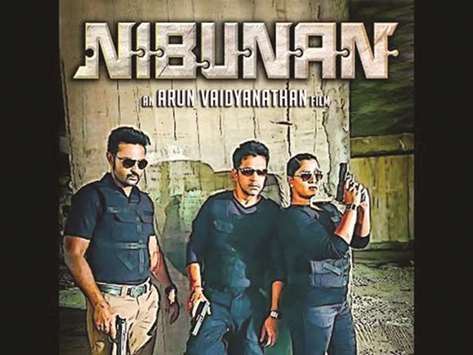Sometimes, the turbulence and turmoil in one’s life reflects in his or her art. Tragedies help fill the canvas with pain and pathos – enriching the artistic endeavour. Madhur Bhandarkar’s cinema has often been seen as portrayals of life in which suffering and sorrow play a crucial part. Whether it was his 2001 Chandni Bar (about the low life of Mumbai’s bar dancers) or his later Traffic Signal (on those who eke out a livelihood selling knick-knacks at street junctions) or Fashion (tracing the pathetic plight of models fighting for fame and fortune), Bhandarkar’s films have revealed a certain kind of angst which he himself experienced early on.
A school dropout, he had to work in a video library (which did, though, give him a great education in world cinema) and at a traffic junction selling chewing gum to commuters in cars or bikes.
In keeping with this line of disquieting cinema, the director’s latest movie, Indu Sarkar, is a touching study of an orphan girl whose stammer makes her unsuitable for the marriage market.
Played beautifully by Kirti Kulhari, Indu is lucky to catch the eye of a government employee, Navin Sarkar (Tota Roy Chowdhury) – only that their union takes place during one of India’s darkest moments, the 1975 Emergency, which lasted 19 months – when the Congress regime headed by Indira Gandhi was at the helm of affairs.
Though the film captures the essence of that time – the forced sterilisations of Muslim men and the ruthless demolition of the huge Turkman Gate slum in Delhi under the autocratic orders of Indira’s son, Sanjay Gandhi (essayed by Neil Nitin Mukesh), the movie is more a personal story of Indu.
She finds her lovely home crumbling and her relationship with her husband hitting the rock bottom when she accidentally comes across the devastatingly heart-rending sight of men and women being shot during the demolition.
She finds two lost children and takes them home, but Navin would not have anything to do with them. Fiercely ambitious (much like Congressman Vidya Charan Shukla was said to have been then), Navin feels that the presence of the kids in his house would tarnish his reputation, and he would fall out of favour with his bosses.
The important leaders of those terrible times – like Jagdish Tytler, Inder Kumar Gujral, Ruksana Sultana, George Fernandes and Nanaji Deshmukh (Anupam Kher) – can all be seen, though their names have been changed. A disclaimer at the start of the film says that only 30 per cent is based on facts, the rest is fiction. And it is this fiction – which takes us through the life of the poor orphan girl/woman, Indu – that really appealed to me.
I think it is this part of Indu’s fight against the barbarism of the Emergency (look at the scene where the two children are forcibly taken away from Indu) – which transforms from the micro (her disagreement with her husband that leads to her divorce) to the macro, when she joins a movement to tell the world about the atrocities happening in her backyard – that is most endearing. This is what makes Indu Sarkar unforgettable – much in the same way as the haunting love story in Casablanca against the backdrop of World War II.
Ultimately, it is not the political upheavals and great wars that floor us, but the human stories that these tragedies expose us to. It is not so much the American Civil War that we remember in Gone with the Wind as much as we do the romance and passion which the raging fires of Atlanta ignited in the hearts of Rhett Butler and Scarlett O Hara. So, we will never forget Indu and the distress she had to pass through saving the lives of those two little children – orphaned much like her.
Nibunan
The Arjun-starrer Nibunan (Expert) got its timing all wrong. It should have opened a few weeks later, for so much of the film reminded me of last week’s Vikram Vedha. Much like Madhavan’s and Vijay Sethupathi’s work, Arun Vaidyanathan’s Nibunan is a cop-chase-killer game. Yes, Arjun’s Ranjith Kalidoss is no encounter specialist like Madhavan’s Vikram. But both end up with guns licensed to kill.
However, while Pushkar and Gayathri kept their script taut and made sure that their Vikram and Vedha did not go overboard with their antics, Vaidyanathan could not possibly rein in Arjun.
For, he is often called Action King, and with his 150th movie outing here, there is no stopping him as he goes about – sometimes like the Victorian sleuth, Sherlock Holmes (who was once famously called upon to crack a case where the criminal left sketches of dancing figures as clues). Ranjit too has a doll, a miniature puppet that is sent to his office, and whose arrival signals the start of a series of murders.
Ranjit knows that each of these gruesome killings is linked to the murder of a domestic help, who is caught in bed with a young girl. (Reminds one of the Talwar case). Her rich and influential architect father, who kills the servant in rage, tries to buy his way out of this mess. But fails, and commits suicide along with his wife (Suhasini Maniratnam). And the murders continue.
For two hours plus, Ranjit and two of his trusted lieutenants, Joseph (Prasanna) and Vandana (Varalaxmi Sarathkumar, whom we saw in Vikram Vedha as well), crawl around trying to decipher the coded messages that the murderous man on the prowl leaves behind for the policemen to solve. Now does this make you think about Tom Hanks’ Da Vinci Code?
* Gautaman Bhaskaran has been
writing on Indian and world cinema
for close to four decades, and may be e-mailed at [email protected]

The Arjun-starrer Nibunan is very similar to last week’s Vikram Vedha.


